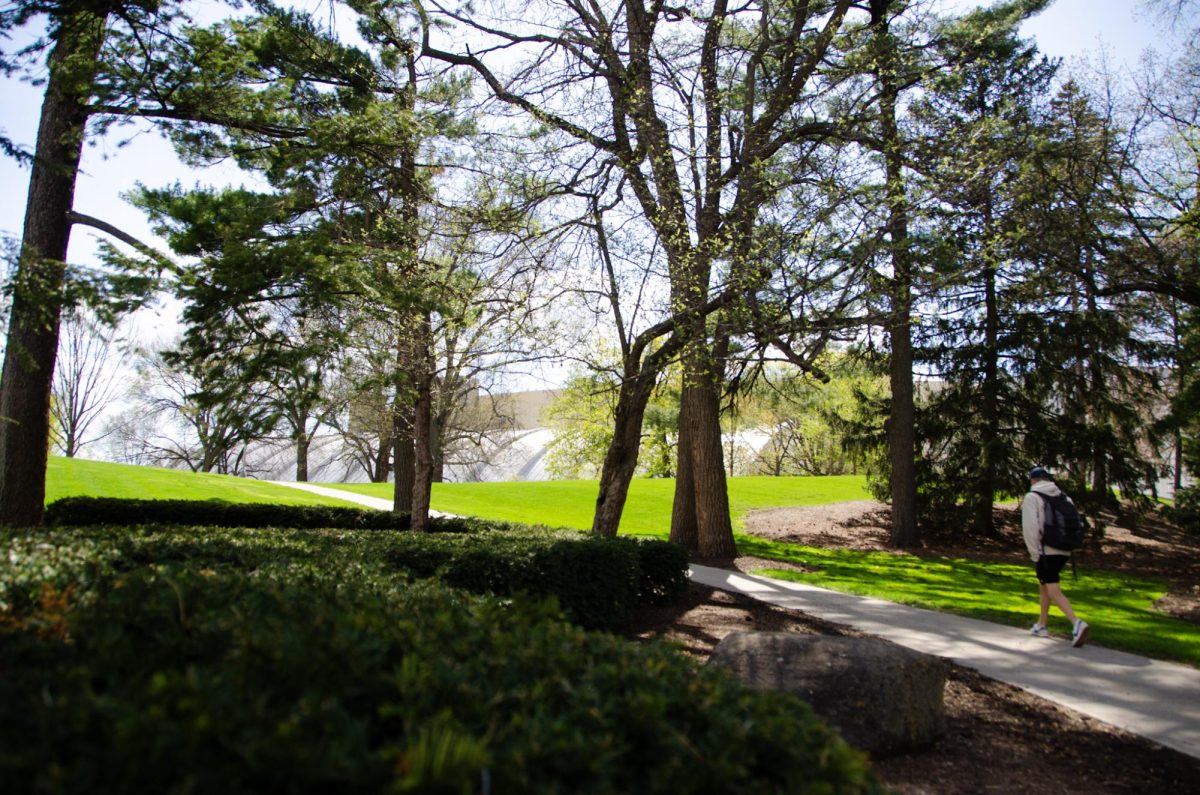A committee of University of Wisconsin’s student government granted an advocacy group eligibility to receive segregated fee funding and heard a presentation from another student organization in a Thursday meeting.
The Student Services Finance Committee approved funding for Wisconsin Public Interest Research Group by a vote of 11 to two. WISPRIG’s mission is to get students involved in public interest issues and make big changes at the local, state and federal levels, according to their website.
In the past couple of years, however, former Chancellor David Ward denied the group funding citing a violation of F50, a UW System policy that governs the allocation of segregated fees.
In the meeting, SSFC Rep. Devon Maier raised concern that many of WISPIRG’s services were similar to those offered by Associated Students of Madison. Maier said he does not see much difference in the peer-to-peer aspect between WISPIRG and ASM.
Rep. Callen Raveret echoed this concern.
“The way [WISPIRG] differs is that they’re not considered students when working on campaigns, they’re considered citizens. It’s on more of a real world basis,” Raveret said.
Rep. Elizabeth Olson said the two organizations are very different in what they work on. She said WISPIRG is very broad and looks at national issues, whereas ASM’s campaigns are campus-based and focused on student issues.
WISPIRG is able to take all students interested in internships whereas ASM only provides six to eight internships a semester, Olson said.
SSFC representatives debated what could be counted as direct services from WISPIRG, and many agreed that WISPIRG’s campaigns were not a direct service but the process of creating them is.
Ravaret said the group’s direct service comes from the experiences, training and learning process of carrying out its campaigns.
Ultimately, the committee granted WISPIRG eligibility.
SSFC also heard an eligibility presentation from Badger Catholic.
Badger Catholic is a student organization that seeks to help connect students to a faith that will inspire them to better their lives and those around them and are dedicated to inspiring and maintaining a campus-wide discussion of faith, Sean McNally, President of Badger Catholic said.
Badger Catholic’s direct services include faith mentoring, which is available to all students, McNally said. The mentoring can be tailored to students in any aspect of faith regardless of religious tradition, he said.
McNally said other direct services include faith-based service trips and service meetings.
SSFC Rep. Justin Bloesch asked about the relationship between St. Paul’s Catholic Church and Badger Catholic.
Badger Catholic is an independent organization and interacts with St. Paul’s as it would with any other organization, McNally said. There is no relationship between the two, but the church does provide Badger Catholic with space to use, he said.
The Multicultural Student Coalition also filed an appeal with ASM Student Judiciary after being denied funding from SSFC.
MCSC is not alleging any violations and are not asking for a rehearing, but are asking for SSFC’s budget to be frozen for the fiscal year in their appeal.
The budget for a body of ASM has never been frozen before, SSFC Chair David Vines said.
Other concerns in MCSC’s appeal are that some of SSFC’s bylaws are contradictory and audio minutes from meetings are not audible, Vines said. These are concerns SSFC is working to address, he said.
In the appeal, MCSC added SSFC representatives had not been prepared to make the eligibility decision.







